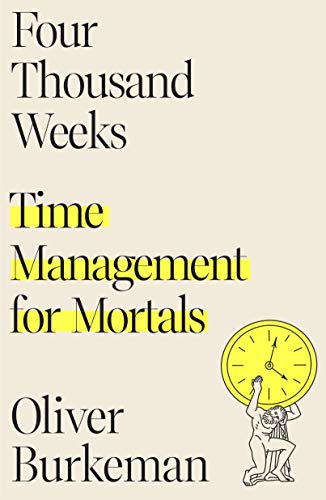
On Settling and Economics
I'm reading Four-Thousand Weeks: Time Management for Mortals by Oliver Burkeman right now based on a recommendation by Becca Syme, a writer coach whose wisdom particularly resonates with me.
Burkeman's work, while wise in its own way, is also incredibly flawed, particularly in his view of economics.
At one point, for instance, he contrasts choosing to island hop across Greece against choosing to feed homeless families.
His point is that our time is limited and whatever we choose to do necessarily negates choosing to do something else, because we simply don't have the time for both.
But his self-righteous moralizing on choosing individual frivolity over humanity in and of itself demonstrates a gross misunderstanding of economics, as do many more modern books written by authors on the political left.
The choice between spending money on seemingly frivolous activities and giving it to the homeless is only a moral conundrum if one is constrained by surface-level economic thinking: Given the choice between the two, and only those two, without delving more deeply into where the money is going or coming from, of course most people would choose giving money to the homeless as the correct moral action. This fallacious appeal to the individual's internal guilt is how people are manipulated into "doing good" when their money and time may be better spent elsewhere (which is literally the entire point of Burkeman's book).
However, when we look beyond the surface, spending money is equally moral, because it keeps the people who are providing that particular service from being homeless...even when people "pay themselves" by saving or investing. Contrary to what you've been told, money stowed in savings and investments is not hoarded; it's actively being used by financial institutions to pay their employees and, of equal importance, to lend money to those wishing to buy a home or start a business; which in turn funnels money toward, for example, developers, builders, construction workers, and the employees of said new business; which allows those individuals to satisfy their personal needs in an endless cycle of upward societal empowerment.
Burkeman later explains that every action is a type of settling: When we choose to focus on one thing (attending law school, for example), we necessarily negate focusing on other things (e.g. training for other trades). Settling is, therefore, a desired activity; it helps us focus on the activities and people that are most meaningful to us, while eschewing those things that aren't.
Sadly, Burkeman seems incapable of applying the advantages of settling when it comes to larger economic issues, such as eliminating poverty. Settling is what makes the economy so robust; keeping it that way is such a complex undertaking that only by individuals working toward meeting their own interests (in the words of Leftists, by individuals being "greedy") can it supply the needs of everyone, a point discussed in I, Pencil, Leonard Read's classic book on market economies.
In other words, it doesn't matter how people spend their money and time, whether "selfishly" by purchasing luxury items or pursuing high-paying jobs, or "unselfishly" by being an activist or social worker, or by donating to charity or volunteering at a soup kitchen. Every penny we spend on fulfilling our own needs and wants, every moment we funnel toward our own pursuits, eventually helps others do the same.
I'm not arguing against charitable giving or volunteering, merely pointing out that there are other, equally valid ways of helping people escape or evade poverty, a point that's missed entirely by those, like Burkeman, who can't or won't look beyond the surface of economic activity and its outcomes.